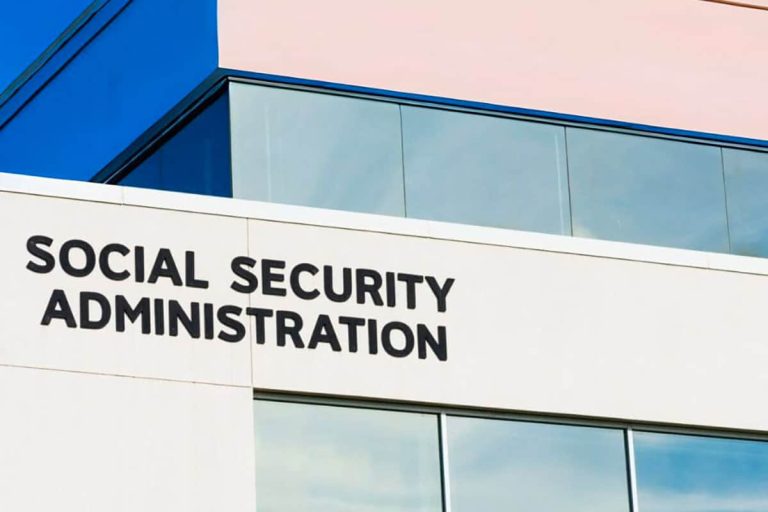If you have been impacted by the Windfall Elimination Provision (WEP) or the Government Pension Offset (GPO), this could be one of the most important articles you read. The good news is that on January 5, 2025, President Joe Biden signed the Social Security Fairness Act, a bill that removes these two provisions that had reduced Social Security benefits for people with a “non-covered” pension. If you’ve been wondering how this change affects you, what you need to do now, and what the next steps are, read on. We’ll break it down in simple terms.
What Is the Social Security Fairness Act?
The Social Security Fairness Act is a major victory for those who have had their Social Security benefits reduced due to the Windfall Elimination Provision (WEP) or the Government Pension Offset (GPO). These provisions had been in place for years, impacting many people, especially government employees, teachers, and others who worked in jobs where their employers didn’t withhold Social Security taxes.
To understand the changes, it’s essential to first know what these provisions were doing and why they were a problem for certain groups.
What Is the Windfall Elimination Provision (WEP)?
The Windfall Elimination Provision (WEP) affects people who worked in jobs where their employers didn’t pay Social Security taxes. For example, many government employees, including teachers, firefighters, and law enforcement officers, work for public employers that don’t withhold Social Security tax from their wages. As a result, these workers may end up with a smaller Social Security benefit when they retire, even if they paid into Social Security during their private-sector jobs.
Under the WEP, your Social Security benefit is reduced, even if you’ve worked enough to qualify for a full benefit. The goal of the WEP was to prevent people from receiving higher Social Security benefits than they would have if they had worked only in jobs that paid into Social Security. But for many workers, this meant a reduced benefit at a time when they relied heavily on their Social Security payments.
What Is the Government Pension Offset (GPO)?
The Government Pension Offset (GPO) affects spouses, ex-spouses, and survivors of government employees who didn’t pay Social Security taxes on their government pension income. If you are married to, or were married to, a government employee who did not contribute to Social Security, your benefits as a spouse or surviving spouse could be reduced by the amount of the government pension.
For example, a teacher who worked in a state where they did not contribute to Social Security but earned a pension might have had their spouse’s or survivor benefits reduced if the spouse qualified for Social Security. The GPO essentially offset those benefits to ensure that individuals didn’t receive both a pension and full spousal or survivor benefits from Social Security.
How Did the Social Security Fairness Act Change Things?
On January 5, 2025, President Biden signed the Social Security Fairness Act into law. This historic piece of legislation effectively eliminates both the WEP and the GPO, two provisions that had caused frustration and financial hardship for many individuals. With the passage of this law, people who are affected by these provisions will no longer have their Social Security benefits reduced because of their “non-covered” pensions.
For those who have been living with the consequences of the WEP and GPO for years, this is a huge relief. The new law means that those who have been unfairly penalized due to these provisions can now expect to receive the full benefits they are entitled to, even if they have a pension from a job that didn’t contribute to Social Security.
What Do You Need to Do Now?
If you are someone who has been impacted by the WEP or GPO, you might be wondering what your next steps should be. The good news is that if you are not yet receiving Social Security benefits, there is nothing you need to do. When you apply for Social Security benefits in the future, the WEP and GPO will no longer apply to your case.
However, if you are already receiving Social Security benefits that were reduced because of the WEP or GPO, there are a few steps you should take to ensure that you get the correct benefit amount moving forward.
1. Verify Your Mailing Address and Direct Deposit Information
The first thing you should do is review your contact information with the Social Security Administration (SSA). Ensure that the mailing address and direct deposit information that SSA has on file for you are correct. If everything looks good, no further action is required on your part.
2. Expect Retroactive Benefits
Since the new law takes effect starting January 1, 2024, you should expect to receive retroactive payments. These payments will cover the period from January 1, 2024, to the present and will make up for any benefits that were reduced due to the WEP or GPO. The SSA will automatically process these retroactive payments, and you don’t need to file a special request to receive them.
3. Monitor Your Social Security Statements
The SSA will update your Social Security records to reflect the changes made by the Social Security Fairness Act. Keep an eye on your Social Security statements to make sure your benefits are adjusted accordingly. If there are any discrepancies or issues, you can contact the SSA for assistance.
What Happens If You Have Already Retired?
If you are already retired and receiving Social Security benefits that were reduced by the WEP or GPO, you will benefit from this new law as well. As long as your information is correct in the SSA’s records, you should begin to receive the adjusted benefits, including any retroactive payments from January 1, 2024. These changes should reflect in your next Social Security check, but it’s important to verify that everything is accurate.
What If You’re Unsure About Your Situation?
If you’re not sure whether the WEP or GPO affected your Social Security benefits, or if you have questions about how the changes in the law will impact you, it’s always a good idea to contact the Social Security Administration directly. They can provide you with personalized information and guidance regarding your benefits and the adjustments you can expect to see.
Why Is the Social Security Fairness Act So Important?
The Social Security Fairness Act is a critical piece of legislation that addresses long-standing issues with Social Security benefits for people who worked in jobs that did not contribute to the Social Security system. By eliminating the WEP and GPO, the law ensures that individuals with “non-covered” pensions are no longer unfairly penalized when it comes to their retirement benefits.
For many retirees and workers nearing retirement, the Social Security Fairness Act provides much-needed financial relief. It restores fairness to the system and helps people get the full benefits they have earned throughout their careers.
Conclusion
If you’ve been affected by the Windfall Elimination Provision or the Government Pension Offset, the signing of the Social Security Fairness Act is a significant moment that could change your financial future for the better. While there’s no immediate action required on your part, it’s important to review your Social Security information and be aware of the retroactive benefits you are entitled to.
In the coming months, you should see the positive effects of the law as your Social Security benefits are adjusted accordingly. This is a major win for fairness, and it’s one that will bring relief to millions of retirees and future beneficiaries who were previously penalized due to their pensions. Stay informed, verify your details with the SSA, and enjoy the benefits of this historic change.
Disclaimer – Our editorial team has thoroughly fact-checked this article to ensure its accuracy and eliminate any potential misinformation. We are dedicated to upholding the highest standards of integrity in our content.




























+ There are no comments
Add yours